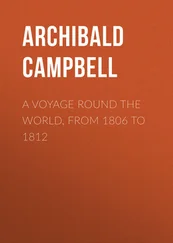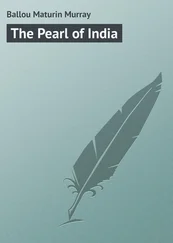Maturin Ballou - Due West - or, Round the World in Ten Months
Здесь есть возможность читать онлайн «Maturin Ballou - Due West - or, Round the World in Ten Months» — ознакомительный отрывок электронной книги совершенно бесплатно, а после прочтения отрывка купить полную версию. В некоторых случаях можно слушать аудио, скачать через торрент в формате fb2 и присутствует краткое содержание. Жанр: foreign_prose, на английском языке. Описание произведения, (предисловие) а так же отзывы посетителей доступны на портале библиотеки ЛибКат.
- Название:Due West: or, Round the World in Ten Months
- Автор:
- Жанр:
- Год:неизвестен
- ISBN:нет данных
- Рейтинг книги:4 / 5. Голосов: 1
-
Избранное:Добавить в избранное
- Отзывы:
-
Ваша оценка:
- 80
- 1
- 2
- 3
- 4
- 5
Due West: or, Round the World in Ten Months: краткое содержание, описание и аннотация
Предлагаем к чтению аннотацию, описание, краткое содержание или предисловие (зависит от того, что написал сам автор книги «Due West: or, Round the World in Ten Months»). Если вы не нашли необходимую информацию о книге — напишите в комментариях, мы постараемся отыскать её.
Due West: or, Round the World in Ten Months — читать онлайн ознакомительный отрывок
Ниже представлен текст книги, разбитый по страницам. Система сохранения места последней прочитанной страницы, позволяет с удобством читать онлайн бесплатно книгу «Due West: or, Round the World in Ten Months», без необходимости каждый раз заново искать на чём Вы остановились. Поставьте закладку, и сможете в любой момент перейти на страницу, на которой закончили чтение.
Интервал:
Закладка:
The largest lake in Japan is that of Biwa, a very fine sheet of water, nearly fifty miles long, but rather narrow, probably not exceeding an average width of more than ten miles. It is situated about eight miles from Kioto, and thither we went in jinrikishas. It was anciently the summer resort of the Mikados, and is a very beautiful lake, abounding in fish, a most important matter to the neighborhood, as rice and fish are the chief diet in Japan. There are many pleasure-houses, so-called, along its banks, where the visitor is entertained with fish fresh from the water, cooked in a great variety of ways. On the north and west side the lake is hemmed in, like a Scotch loch, by lofty hills, but on the other sides by pleasant, highly cultivated lands, slightly undulating, and ornamented with pretty little hamlets, and tea-houses for visitors who sail upon the lake for pleasure. Our jinrikisha men took us there in less than an hour and a half, but as the road rises towards Kioto we were fully two hours in returning. On this occasion women harnessed tandem, with men, to some jinrikishas were met, and they trotted off quite as easily at a pony gait as did the men, but it is gratifying to say that it was the only time we saw women so employed.
We returned to Kobé by way of Osaka, a city nearly as large as Kioto, and much more of a business and manufacturing centre. The national mint is located here, with some other large government works. The ancient fort overlooking the town is of great interest, and is still fortified, affording barracks for a couple of regiments of the regular army. It is a remarkably substantial structure; many of the stones of which it is composed are so large that it is a wonder how they could ever have been transported intact from the quarry. Osaka has rivers and canals running through it much like Amsterdam, though not so numerous, and has been appropriately called the Venice of Japan. It is not Europeanized like Kobé or Yokohama; it is purely Japanese in all respects, and possesses a considerable commerce. The day of our arrival was a festal one, being consecrated to the god of the waters; wherefore large boats gayly decked with flags and party-colored streamers, containing crowds of gayly dressed men in harlequin style, were rowing in long processions through the water-ways of the city and under the many high-arched bridges. On the decks of the boats the people were dancing and singing (howling), to the notes of an indescribable instrument, which could give a Scotch bag-pipe liberal odds and then surpass it in its most hideous discordance. Music is not a strong point with the Chinese or Japanese; if they have any actual melody in their compositions, no foreign ear can detect it. At one of the public performances at Kobé it seemed that the notes were produced by a file and rusty saw.
We embarked at Kobé November 26th, on the Japanese steamship Nügata Marü, officered by Europeans, but manned by natives, bound for Nagasaki, near the southernmost point of Japan, and to reach which we sailed the whole length of the famous and beautiful Inland Sea. It was a most enchanting voyage of two days and two nights, among innumerable islands and grotesquely formed hills, which were covered with foliage and verdure to the very water's edge. Many of these islands were inhabited, and cultivated on their abrupt sides in terraces, like vineyards on the Rhine, displaying great care and taste. The aspect of the conical islands, bluffs, headlands, and inlets recalled the St. Lawrence River in Canada, presenting narrow and winding passages, losing themselves in creeks and bays after a most curious fashion, while little brown hamlets here and there fringed the coast line. At night, the scene changing constantly was enhanced in beauty by the clearness of the atmosphere and the brightness of the moon. We slept scarcely at all on board the Nügata Marü; it seemed almost sacrilege to miss an hour of the beautiful flying panorama which was being so silently spread before our vision.
The sea was one sheet of rippling silver; the stars, partially eclipsed by the moon, "silver empress of the night," were nevertheless bright and sparkling with diamond lustre. All was still, for though we eagerly watched, we rarely spoke; silence became eloquent on such an occasion. Now and then the deep, hoarse voice of the captain from the forecastle of the steamer floated aft: "Port your helm," "Starbord," "Steady." In this intricate navigation the captain leaves the bridge to the officer of the watch, and temporarily takes the post of the forward lookout. Now we run close in under some towering headland, now sheer off from a green isle so near that none but an experienced pilot would dare to hug the shore so closely. At many points the sea seemed to be completely land-locked, like the Lakes of Killarney, framed in by lofty hills. Too much had not been promised us in this special voyage through the Inland Sea. For once, fruition was confirmation. We could have sailed on and on, over those still, deep waters and among those fairy-like isles, for weeks unwearied, and when at last we anchored in the snug harbor of Nagasaki the voyage had been only too brief.
A sad interest attaches to the small but lofty island of Pappenburg, which stands like a sentinel guarding the entrance to the harbor of Nagasaki. It is the Tarpeian Rock of the far East. During the persecution of the Christians in the seventeenth century, the steep cliff, which forms the seaward side of the island, was an execution point, and from here men and women who declined to abjure their faith were cast headlong on to the sea-washed rocks far below. The present verdure and beauty which so characterize the spot are in strong contrast with the sad history of the place; nor could we gaze upon its precipitous side, as we steamed slowly by, without a shudder at the tragedies once enacted there.
Nagasaki was found to be a thrifty commercial city of about a hundred thousand inhabitants, with a fine harbor, the entrance being as narrow as that of Havana; but once inside, the combined fleets of the world might find good anchorage under the shallow of the lofty hills which surround its deep, clear waters. The extreme length of the harbor must be about four miles, by two in width. Tall, dark pines and a verdant undergrowth mark the deep ravines and sloping hill-sides, upon which European dwellings may be seen overlooking the bay, interspersed with a few Buddhist temples. During a delightful afternoon stroll and climb among these hills, we came upon many wild flowers, shaded by oaks and camphor-trees of great size and beautiful foliage, with occasional specimens of the Japan wax-tree. Still farther up, the hills were covered with dark, moss-crowned grave-stones, bearing curious characters and marking the sleeping-place of by-gone generations, the unbroken quiet of this city of the dead, contrasting with the hum of feverish life that came up from the busy town.
Nagasaki is quaint even for a Japanese city, its clean, broad streets ornamented by growing palms, pomegranates, and bamboo-trees, while each shop is a little museum in itself. Like Osaka, it is thoroughly Japanese in its appearance, as well as in the manners and customs of its thrifty inhabitants. Here, and throughout the entire country, one feels impressed with the evident peace, plenty, and content. As to the products of this locality, they are mostly figured porcelain, embroidered silks, japaned goods, ebony and shell finely carved and manufactured into ornaments. Every little low house has a shop in front, and is, as usual, quite open to the street; but small as these houses are, room is nearly always found in the rear or side for a little flower-garden, fifteen or twenty feet square, where dwarf trees flourish amid little hillocks of turf, and ferns, and small tubs of gold fish. Azaleas, laurels, and tiny clumps of bamboos are the most common plants to be seen.
Читать дальшеИнтервал:
Закладка:
Похожие книги на «Due West: or, Round the World in Ten Months»
Представляем Вашему вниманию похожие книги на «Due West: or, Round the World in Ten Months» списком для выбора. Мы отобрали схожую по названию и смыслу литературу в надежде предоставить читателям больше вариантов отыскать новые, интересные, ещё непрочитанные произведения.
Обсуждение, отзывы о книге «Due West: or, Round the World in Ten Months» и просто собственные мнения читателей. Оставьте ваши комментарии, напишите, что Вы думаете о произведении, его смысле или главных героях. Укажите что конкретно понравилось, а что нет, и почему Вы так считаете.












